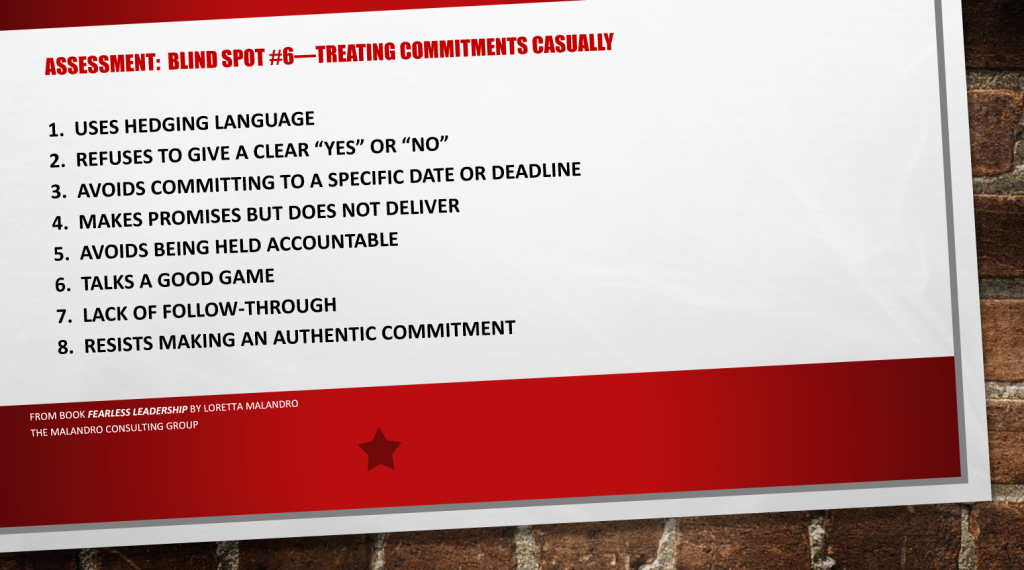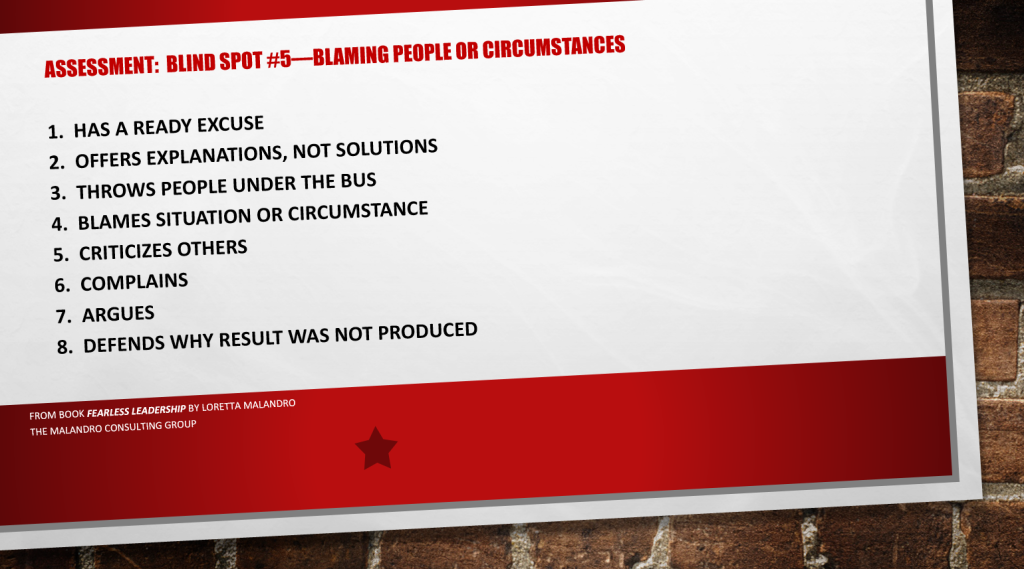
This is the sixth of 10 blind spots that may be sabotaging your effectiveness.
Blind Spot #6—Treating Commitments Casually. What it Means
A casual commitment is the lack of a clear “no” response, a clear “yes” response, or the lack of a specific timeframe or deadline.
If you use hedging words such as “maybe, perhaps, sometime, or soon” you may be a master at making empty promises.
Do you ever say “let’s have coffee (or lunch, dinner) sometime.” The word “sometimes” makes this a casual promise. Without a specific date and time, this is an invitation to nothing.
The Downside of Making Slippery Commitments
Do you avoid giving a clear “yes” or “no” response? Do you make promises but conveniently leave out when something is going to happen?
If you do, you have learned how to escape being held accountable. No one can point the finger at you because you’re ready with your glib response: “I never said I would do “x” by such-and-such date”.
Oh, you are smooth but you’re paying a high price for your slippery communication. People will dismiss your words because you are all talk and no action. You will lose credibility, trust, relationships, and opportunities. Is this enough to get your attention?
Do YOU Make Casual Commitments?
Ask others to assess your behavior using the scale of 1 (rarely) to 5 (frequently).
How do you rate?
32 to 40: WOW! You are a master of slippery commitments. How’s this working for you?
17 to 31: Your inconsistent promises get you in trouble. Clean it up.
8 to 16: You are good—you make and keep your commitments. Keep up the rigor.
Want More?
Read the book Fearless Leadership and the anti-blogs on the 10 Blind Spots.
Dr. Loretta Malandro is the CEO of the Malandro Consulting Group (www.malandro.com) and the author of several landmark business communication books including: Fearless Leadership, Say It Right the First Time, and her new book, “Speak Up, Show Up, and Stand Out: The 9 Communication Rules You Need to Succeed”.





